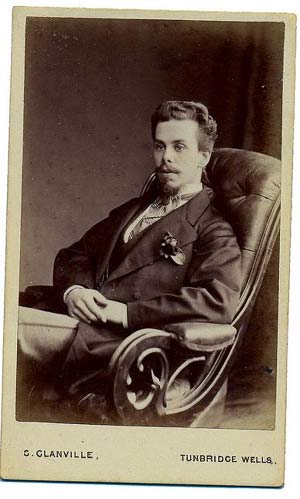胡子的式样记录了人们审美的发展和社会心理的变化:它曾是男性力量、贵族气质和才智的标志,随着后工业时代的到来以及人们个性的勃发,现代男性的胡子样式变得更加异彩纷呈。

By Paula Marantz Cohen
刘琪 选注
In primitive societies, a beard was often the sign of masculinity,[1] but in advanced societies, it ceases to be meaningful. Men now don’t need to feel bad if they can’t grow a beard, and if they can and do, they can make the beard mean what they wish.
Beards have risen and fallen in popularity over the course of history. Greeks favored them. Romans (at least late Romans) did not. They disappeared among the upper classes in Europe in the early 17th century, then reappeared during the Victorian era[2], only to decline again in the 20th century. It is interesting to think of the many great men in history who had beards: Socrates, Christ, Lincoln, Freud, Lenin (the first two represented at least as having them)[3]. Imaginary figures like Santa Claus and Father Time—beneficent, wise, and elderly—are represented with beards.[4] Almost all movie stars have been beardless in their offscreen[5] image. Madison Avenue advertisers in the mid-20th century can be credited with popularizing clean-shaven male jaws.[6] The counter-culture[7] of the late 1960s brought beards back into public view. Al Gore[8] grew a beard at the height of his environmental activism but also after his political career was over. One cannot imagine a serious politician these days wearing a beard.
Alexander the Great forbade the growing of beards in his army; he was concerned that the enemy would take hold of the hair for leverage.[9] Few professional athletes have beards, perhaps for the same reason.
Jews have always had an interesting relationship to beards. The Orthodox of the religion have traditionally worn beards because the Bible states: “You shall not round off the side-growth of your heads nor harm the edges of your beard”—hence the wearing of sidelocks as well as beards.[10] The sons of Jewish immigrants in America abandoned beards as a way of opposing both religious orthodoxy and the mentality associated with their fathers.[11]
Today, many 20-somethings take an alternative between a five o’clock shadow and a two-day stubble.[12] It looks as though they have forgotten to shave. But I suppose this is the point—the look is an affectation[13] of forgetting to shave, not a real forgetting. Their quasibeardedness is more whimsical, more a self-proclaimed mask.[14] It may also reflect a slowing of the progress from childhood to maturity, what sociologists, referring to the years between 20 and 30, have dubbed “emerging adulthood.”
In the end, I think we need to look beyond men to women in understanding what the shadow/stubble means. Women, let’s face it, give mixed messages about what they want—and male facial hair is no exception. Shakespeare’s Beatrice in Much Ado About Nothing put it well in describing our difficulty in settling on a preference.[15] She notes: “He that hath a beard is more than a youth and he that hath no beard is less than a man.” If today’s young men have figured out how to resolve this double bind[16], I applaud them.
Vocabulary
1. primitive society: 原始社会;masculinity: 男子气概。
2. Victorian era: 维多利亚时代,指英国女王维多利亚[1837—1901]统治时期,当时英国加紧向外扩张,建立庞大殖民地,工商业也迅速发展,为英国历史上的“黄金时代”。
3.……苏格拉底、耶稣基督、林肯、弗洛伊德、列宁(前两位至少表现起来是有胡子的)。
4. Santa Claus: 圣诞老人;Father Time: 时光老人,常被描绘成蓄有胡子的老人,身着长袍,手持镰刀和沙漏。在一些国家的新年习俗中,时光老人代表了过去的一年,他将时间交予新年娃娃(Baby New Year,代表新的一年);beneficent: 仁慈的,行善的。
5. offscreen: 银幕外的,影星私人生活中的。
6. Madison Avenue advertiser: 麦迪逊大街的广告商,麦迪逊大街为美国广告业中心;credit sb. with sth.:将……归功于某人;clean-shaven: 刮光胡子的,不蓄须的。
7. counter-culture: “反文化”运动,20世纪60年代,美国战后出生的年轻一代在国内发起了声势浩大的“反文化”运动,以各种方式反抗主流价值观,其中包括校园民主运动、妇女解放运动、黑人民权运动等方面的政治运动,也包括摇滚乐、性解放、嬉皮文化等方面的文化运动。
8. Al Gore: 戈尔(1948— ),美国前副总统,卸任后致力于环保事业。
9. Alexander the Great: 亚历山大大帝 (356BC—323BC),马其顿国王,先后征服希腊、埃及和波斯,并入侵印度,建立亚历山大帝国;take hold of the hair for leverage: 此处指揪住胡子以便攻击。
10. the Orthodox of the religion: 正统派犹太教徒;“You shall not round off the side-growth of your heads nor harm the edges of your beard”: “头的两鬓不可剃,胡须的周围也不可损坏”(《圣经•利未记 19: 27》);sidelocks: 正统派犹太男教徒将鬓角蓄起,编成辫子垂下来,称为sidelocks。
11. orthodoxy: 此处指正统派犹太教;mentality: 心态。
12. 如今,二十来岁的年轻人则选择一种介乎于青嘘嘘的下巴和两天没刮的胡茬之间的效果。stubble: 胡茬。
13. affectation: 假装。
14. 这些年轻人似有似无的胡须,看上去更加捉摸不定,更像是一张标榜自我的面具。
15. 莎翁喜剧《无事生非》中,女主角Beatrice 极好地阐释了女性在确定倾心之人时的困境。
16. double bind: 进退两难的困境。
(来源:英语学习杂志)